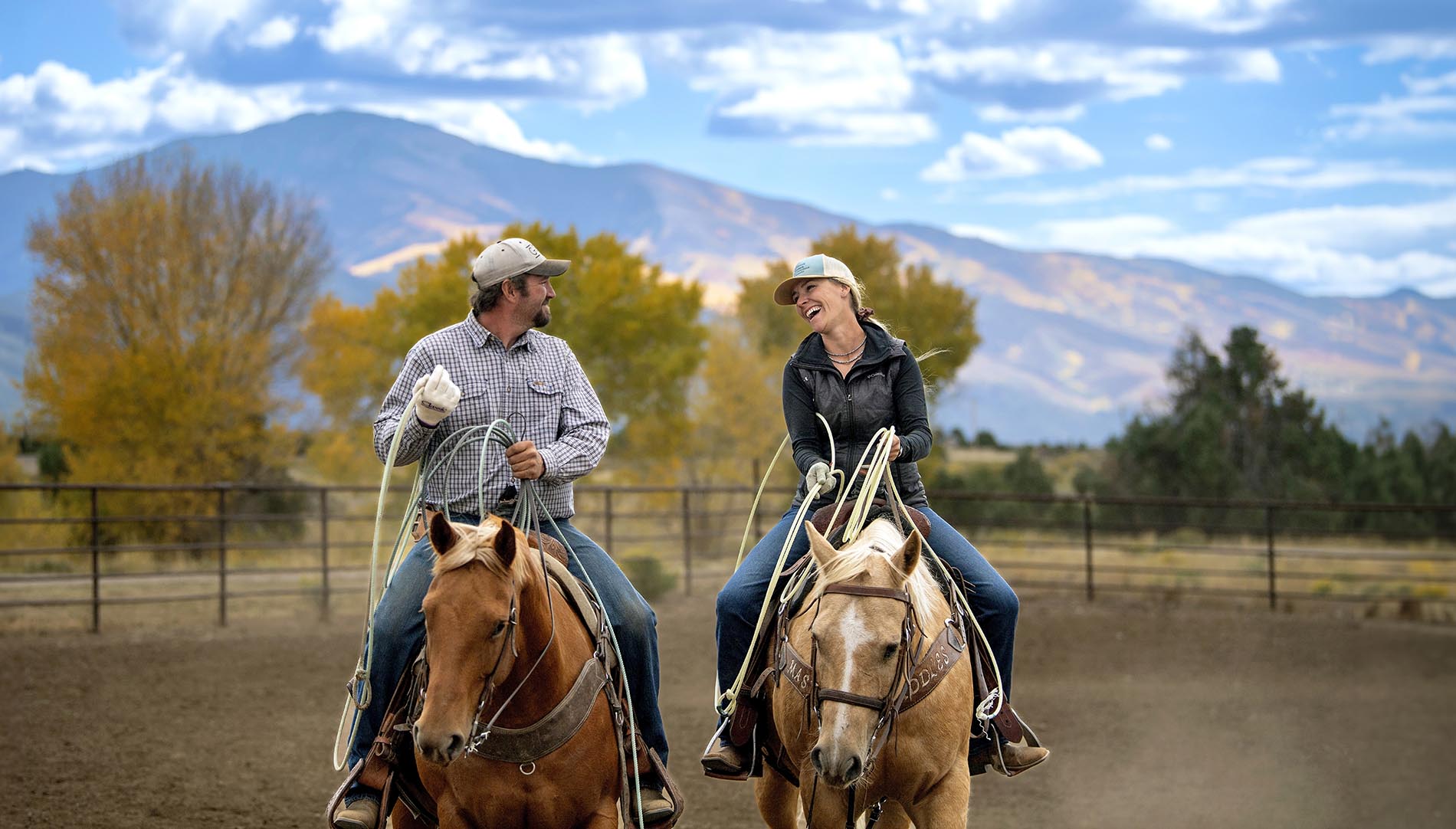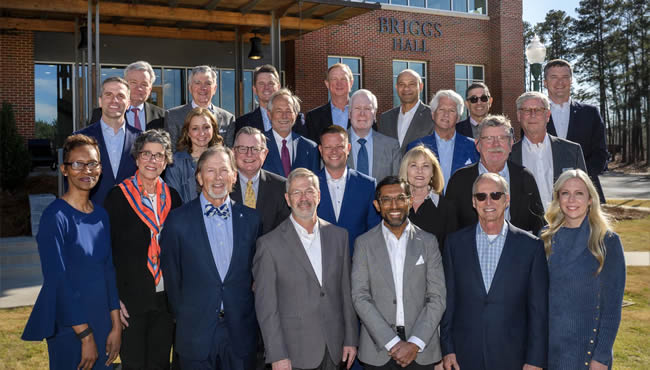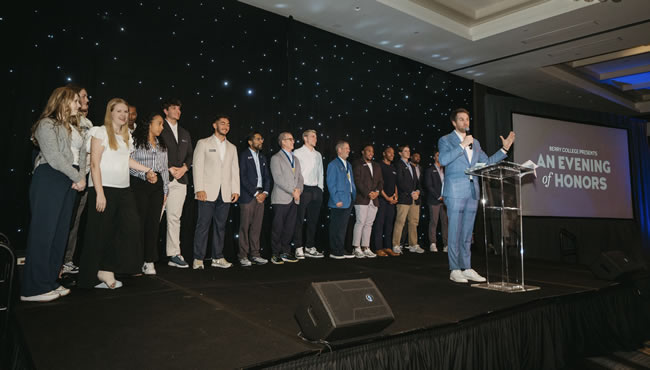STORY BY KARILON L. ROGERS
Photography by Brant Sanderlin
“Go west, young grad, go west.”
That’s the mantra Arden Foster (15C) repeatedly heard in her head when she was preparing to graduate from Berry. In fact, she heard it so often and wanted to do it so badly that she began to tell people she was going to work on a “dude” ranch in Colorado for a summer even before she’d roped an opportunity to do so.
But then she did. And she loved it. And out West she stayed because she found her passions: ranching, competitive team roping, breeding and training horses, and simply living in the moment. Now, nine years later, the relative newbie is partnering with a fourth-generation horse breeder, rancher and roper to do all those things.
Continuing education
“I feel like I learn something every day,” Foster declared about her chosen path, now on the 10,000-acre Johnson Ranch on the edge of the Carson National Forest in Northern New Mexico, where she and Clay Johnson (at left) live on 200 acres, sharing the rest of the land with his parents. Johnson keeps a registered herd of 125 high-altitude Limousin cattle (excellent beef production with feed efficiency) on the high-prairie land at 7,700 feet. Together, Foster and Johnson’s registered quarter horses number about 75 each year.
Foster’s education runs at warp speed here, where rotational grazing and planting take care of the land and cattle are moved for the summers to specified areas of the Carson National Forest on Bureau of Land Management leases. She is involved in it all – from plowing to fixing fences to herding cattle in the snow.
Then there are her loves: the horses – their breeding, raising and riding.
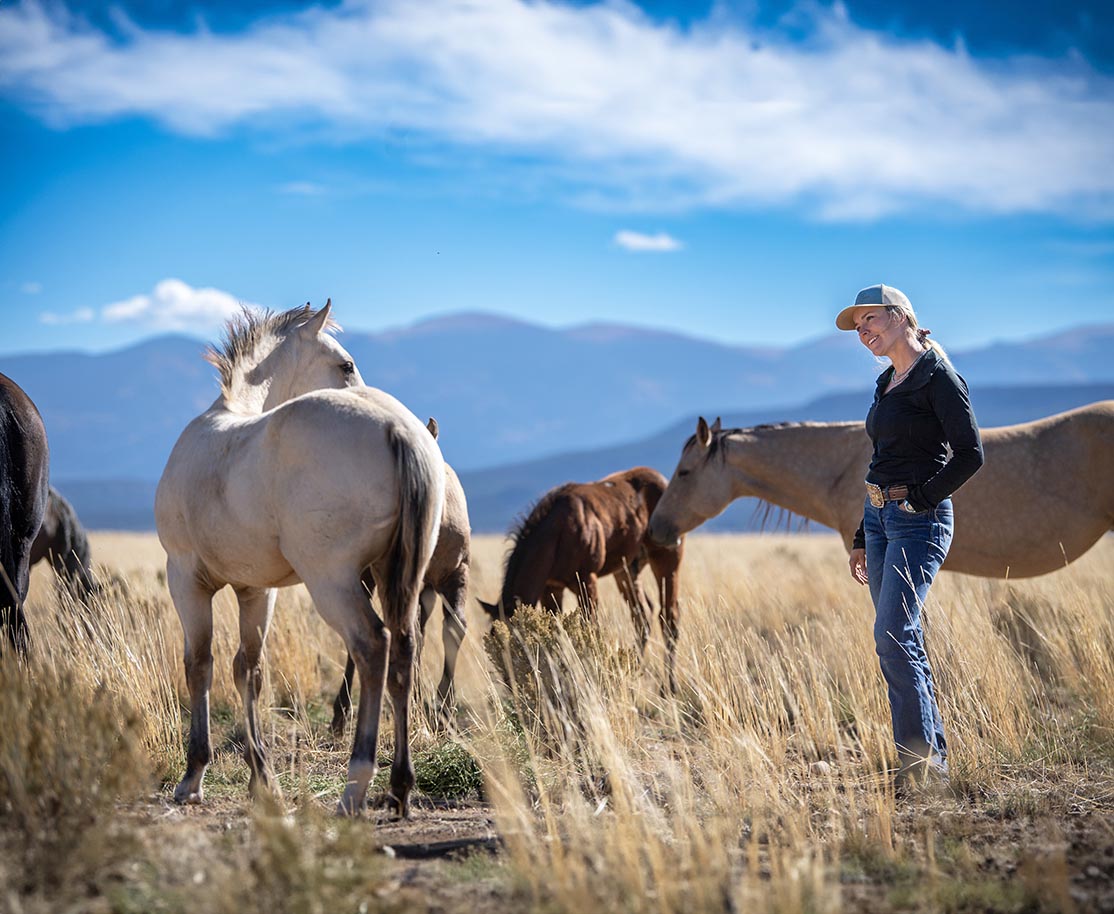
“We currently have 18 broodmares and sell about 20 horses a year, normally from 2 to 4 years of age,” Foster said. “Our focus is on training for team roping, but we hope our horses are versatile enough for anything.”
She explained that horse breeders all have their own ways of doing things; their way is to allow their mares to foal in the pasture.
“We try not to interfere,” she said about the birthing process. “We monitor, we watch, and we make sure the process is going normally. We only get involved when we feel we need to. But once foals are born, we try to get hands on them quickly – it’s called imprinting – to get them comfortable with us.”
Halter-breaking, a foal’s first experience learning to respect the trainer and to respond to gentle pressure exerted on the leather or rope strap around his or her head, starts at about 7 months and is one of Foster’s favorite tasks.
“You are like a pre-school teacher,” she explained. “You have to be patient.”
She doesn’t put a saddle on a colt or filly until 2 years of age, and their horses always get pasture breaks after all levels of training or work in the rodeo ring.
“Our horses know that life is not always about work and more learning,” Foster stated. “There is always time off after. They get a vacation in the pastures. We let our horses be horses.”
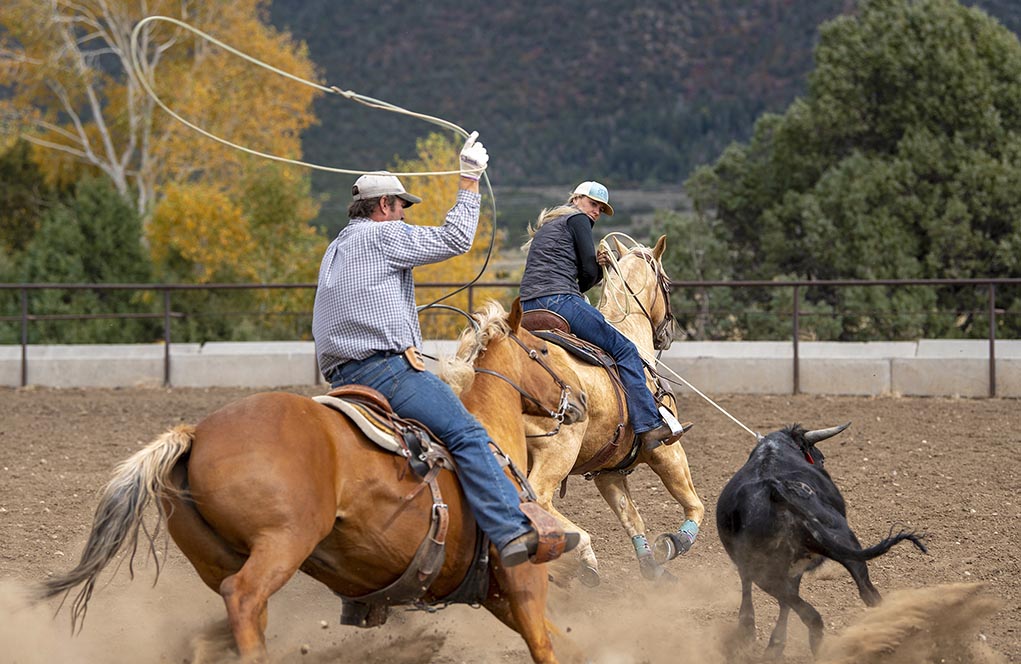
Out of the chute
Team roping, a timed event in which two riders work together to rope a steer’s horns and feet faster than the competition, is a BIG deal in places like Arizona and New Mexico. And those are the states in which Foster has earned victories in a sport that cares not if you are a man or a woman; all compete equally.
A former English rider as a young girl and on Berry’s equestrian team, she got her first big win at the 2021 National Team Roping Opener held in the “Team Roping Capital of the World,” Wickenburg, Arizona. In 2023, she won a TA Rodeo Jackpot with Johnson as her partner in Cimarron, Arizona, as well as a jackpot roping event in Las Vegas, New Mexico, where she earned her first championship saddle.
“Berry gave me the chance to grow up and do it safely. It prepared me for adulthood and helped me come to the revelation of who I am and what I want in life. Because I didn’t know.”
There’s money to be won at these events, and she has started to bring in her fair share on horses she trained for competition. When Johnson or Foster win, more attention is brought to the horses they raise, resulting in more buyers.
The “dude” did it
It was the Rainbow Trout Ranch, the coveted dude ranch where Foster worked that first summer after her Berry graduation (and seven more after) that set her firmly in a Western saddle. Her main job was taking guests on horse rides into the mountains, but she’s quick to point out this wasn’t a “typical nose-to-tail trail ride.”
“We trotted and loped,” she explained. “I got to share horses with people and have them enjoy the horses as much as I did. Sure, sing-alongs and cookouts were part of it. I also cleaned cabins and washed cars. Everyone helps out in every facet. But the horses were what made it for me. I remember watching Jane Van Berkum, who runs the horse program, ride and rope and thinking, ‘I want to be as cool as her.’”
In the winters of those early years, Foster worked on the nearby Garcia Ranch, where she received “a wonderful opportunity” to learn and to purchase her first two horses.
Learning to try
Even though she wasn’t sure at first about going to college, the lifelong horse enthusiast from McDonough, Georgia, fell hard for Berry. Looking back on those days, Foster noted four things that most helped shape her future.
Academically, the marketing major pointed to an entrepreneurship class with Dana Professor of Management and Entrepreneurship Paula Englis in which she wrote a business plan and started an actual business, Hoof ’N Home, with Jessica Tabb Gugliotta (15C), who has kept it going.
“The class was such a great opportunity for students to have a safe place to find out if they can be their own boss,” Foster emphasized. “It was such a cool, real-life opportunity.”
Second was the equestrian team.
“We worked hard for the team, the horses and the program,” she stated. “The bond we had over horses and the team has been unlike any other in my life.”
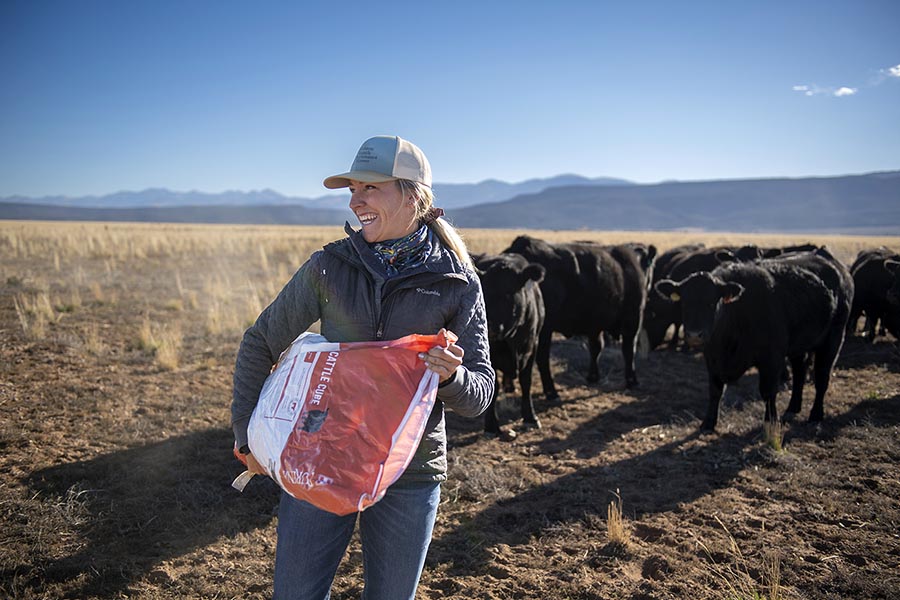
Third was the work program, today called LifeWorks. She helped in the equestrian office, but, surprisingly, it was the carpentry shop that had the greatest impact on her.
“Working in college helped me learn time management and how to multi-task,” she related. “But my biggest takeaway was the work ethic I developed under the watchful eye of my mentors in the carpentry shop, Scott Simpson and Kevin Loorham [FFS]. They were so patient answering my thousands of questions; their tutorship was unmatched in my eyes. Using my hands was good for me and helped me refocus on my academics, and it was inspiring to see what I could accomplish on my own.”
Last was an “exceptional summer internship opportunity” in her prospective field that offered “a great learning experience” while also opening her eyes to the fact that she wasn’t ready to do that type of work for the rest of her life … yet. And, as it turns out, maybe ever, although those skills have paid dividends, first in blog posts written for the Rainbow Trout Ranch and more recently in the web content she has created to help market the horses she raises and trains with Johnson.
Family knows
While she misses her family (and Georgia food), Foster has found a home out West, and she gives Berry much credit.
“Berry gave me the chance to grow up and do it safely,” she said. “It prepared me for adulthood and helped me come to the revelation of who I am and what I want in life. Because I didn’t know.”
Her aunt, Betty Ward, with whom she lived after losing both parents, did have a clue, however.
Foster was nervous about explaining her dude ranch plans but finally worked up the courage. The response she received not only provided a great sense of relief but also hit the nail on the head.
“Oh, honey!” her aunt exclaimed. “Thank God! Georgia is great, but you should go and explore and do!”
And she did. And she loves it.
